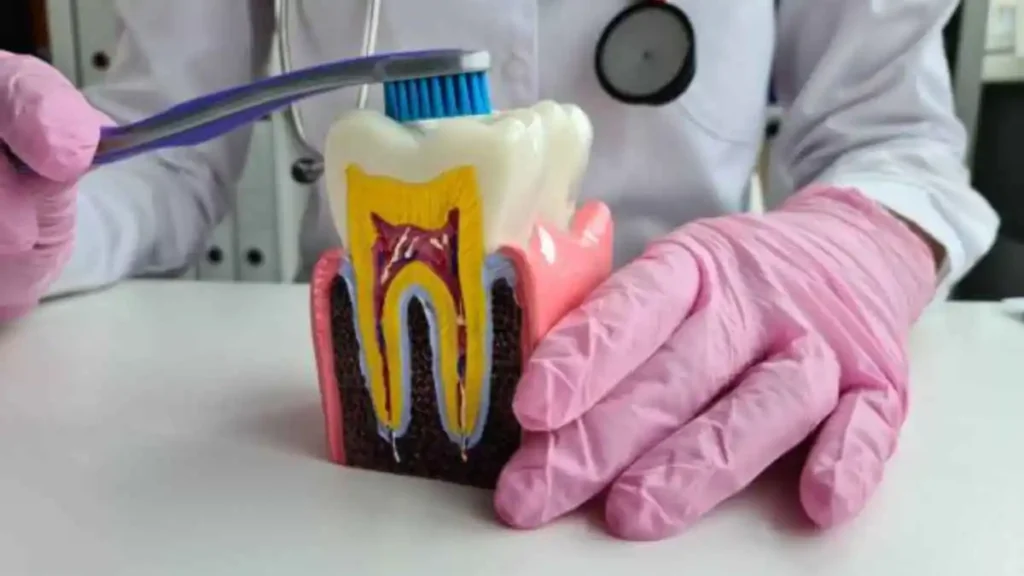HEALTH AND FITNESS
Choosing the Best Toothpaste for Gum Disease: What You Need to Know

When it comes to maintaining your oral health, choosing the best toothpaste for gum disease and tartar removal is crucial. The right toothpaste can help reduce symptoms like inflammation, bleeding, and sensitivity while promoting healthier gums overall. But with so many options on the market, how do you know which one to pick? This guide will walk you through everything you need to know about selecting the best toothpaste for gum inflammation and disease.
Table of Contents
What is Gum Disease?
Gum disease, also known as periodontal disease, is a common oral health issue that affects the tissues surrounding your teeth. It typically begins as gingivitis, where gums become red, swollen, and may bleed easily. If left untreated, it can advance to periodontitis, a more severe form of gum disease that can lead to tooth loss.
Maintaining good oral hygiene, including using an effective toothpaste for gum disease, is key to preventing and managing this condition.
Signs of Gum Disease
Recognizing the early signs of gum disease is the first step in protecting your oral health. Some symptoms to look out for include:
- Red, swollen, or tender gums
- Bleeding gums, especially when brushing or flossing
- Receding gums
- Persistent bad breath
- Loose teeth
If you notice any of these signs, it’s essential to act quickly by improving your oral care routine and visiting your dentist. Choosing a specialized toothpaste for gum inflammation can help control the symptoms and prevent further damage.
Why Choosing the Best Toothpaste for Gum Disease Matters
Using the right toothpaste plays a vital role in managing gum disease. A quality toothpaste for gum inflammation is formulated to:
- Reduce plaque buildup
- Soothe swollen and irritated gums
- Strengthen enamel to protect teeth
- Minimize bleeding and sensitivity
Regular use of such toothpaste, along with proper brushing techniques and flossing, can help slow down or even reverse the early stages of gum disease.
Key Ingredients to Look for in Toothpaste
When selecting toothpaste for gum disease, look for these specific ingredients known for their gum-soothing and plaque-fighting properties:
1. Fluoride
Fluoride is essential for strengthening tooth enamel and protecting against decay. While it primarily focuses on preventing cavities, it can also help fight plaque and bacteria buildup that contributes to gum disease.
2. Stannous Fluoride
Unlike regular fluoride, stannous fluoride has additional benefits for gum health. It helps reduce gingivitis and inflammation while fighting plaque and bacteria that cause gum disease.
3. Antibacterial Agents
Toothpaste that contains antibacterial ingredients, like triclosan or chlorhexidine, helps kill harmful bacteria in your mouth, reducing inflammation and the risk of infection. These agents are particularly effective in targeting bacteria responsible for plaque and gum disease.
4. Aloe Vera
Known for its soothing properties, aloe vera is often included in natural toothpaste. It helps calm gum inflammation and supports the healing of irritated gums.
5. Baking Soda
Baking soda is a mild abrasive that helps remove plaque without being too harsh on sensitive gums. Its alkaline nature also helps neutralize acids in the mouth that can contribute to gum disease.

How to Choose the Right Toothpaste for Gum Inflammation
Choosing the best toothpaste for gum disease depends on your specific needs. Here are some factors to consider when making your selection:
1. Severity of Gum Disease
If you’re dealing with mild gum inflammation, a regular toothpaste with fluoride and antibacterial properties may suffice. However, if you’re experiencing more advanced symptoms like bleeding or receding gums, look for a toothpaste with stannous fluoride or specialized ingredients for gum health.
2. Sensitivity
If your gums are sensitive, opt for a sensitivity toothpaste that includes ingredients like potassium nitrate alongside gum-soothing agents. This will help manage both your gum disease and tooth sensitivity.
3. Natural vs. Conventional
If you prefer natural ingredients, look for toothpastes with aloe vera, tea tree oil, or myrrh, which offer gentle antibacterial and anti-inflammatory benefits. For more intense treatment, conventional toothpaste with fluoride and stannous fluoride is recommended.
Tips for Managing Gum Disease
Along with using the right toothpaste for gum inflammation, here are some additional tips to help you manage and prevent gum disease:
1. Practice Proper Brushing Techniques
Brushing twice a day is essential, but it’s also important to brush the right way. Use a soft-bristled toothbrush and gentle, circular motions to clean along the gumline. Aggressive brushing can cause further gum damage.
2. Don’t Skip Flossing
Flossing daily removes plaque and food particles from between teeth that your toothbrush can’t reach. This prevents the buildup of bacteria that cause gum disease.
3. Use Mouthwash
An antiseptic mouthwash can help kill bacteria in hard-to-reach places and reduce the risk of gum disease. Look for mouthwashes with chlorhexidine or essential oils for maximum benefits.
4. Visit Your Dentist Regularly
Regular dental checkups and cleanings are critical for preventing and treating gum disease. Your dentist can remove tartar buildup and provide personalized advice for keeping your gums healthy.
Conclusion
Choosing the best toothpaste for gum disease is a crucial step in maintaining your oral health. Whether you’re looking for toothpaste to treat early signs of gum inflammation or a more severe form of gum disease, the options listed in this guide offer targeted relief and protection. Incorporating good toothpaste for gum inflammation into your daily oral care routine, combined with proper brushing, flossing, and regular dental visits, will help you combat gum disease and keep your gums healthy.
-

 GENERAL6 months ago
GENERAL6 months agoChristofle – For Those Who Dream of Family Heirloom Silver
-

 SPORTS8 months ago
SPORTS8 months agoDiscover the World of Football with Streameast: Watch Your Favorite Leagues and Tournaments
-

 GENERAL4 months ago
GENERAL4 months agoUncovering the World of кинокрадко: The Dark Side of Film Piracy
-

 GENERAL2 months ago
GENERAL2 months agoATFBooru: Anime, Gaming, and Subculture Imageboard





























